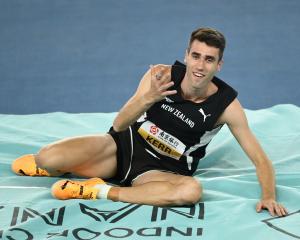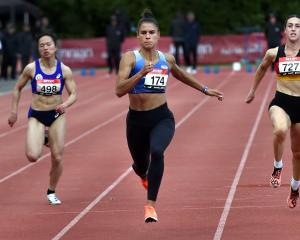
The athletes, plus two Otago coaches, are set to head to Suva, Fiji, and its mid-20degC weather.
There they will compete as part of the 56-strong New Zealand team at the Oceania Area Championships.
The group includes decathletes Felix McDonald and Cameron Miller, middle distance runner Nathan Hill, 400m and 800m runner Sam Gouverneur and thrower Hamish Mears.
It also includes Southland athletes Anton Schroeder and Liam Turner, who both attend Otago Boys’ High School.
Local coach Megan Gibbons will travel with the team and is responsible for helping the sprinters and hurdlers.
As well, para-athletes Anna Grimaldi, Holly Robinson and Jess Hamill will use the meeting as part of their preparation for July’s world championships.
Otago’s Raylene Bates is the high performance manager of that group.The championships are a development meetingin which New Zealand athletes wear white singlets.
Such meetings help them on to the pathway to silver singlet meetings and, ultimately, world meetings, at which they wear black.
They allow youngsters to get a taste of international competition and compete in a different environment.
Aside from the para team, the Otago athletes attending are young, either at school or not long left. However, Gibbons felt they could go well and said it would be a good experience.
"I think they’ll go OK. They do have medal chances, absolutely.
"There will be some challenges for them, like Felix and Cam are doing the combined events, so competing in a decathlon in 30-degree heat might be a bit of a challenge for them.
"But I think for the likes of Hamish and Anton and Nathan, it’s their first competition outside of New Zealand really, unless they’ve been to Australian champs, so it’s sort of that next step up."
The heat represented a big challenge for Dunedin athletes coming from a cold winter, as did going into the competition out of season.
While the temperature was often a nice change, it was the humidity that Gibbons said could be hard to adapt to.
However, many of the group had been aqua jogging in the heated physio pool to try to simulate that.
The standard of competition varied.In some events, the standard could be high and competition for medals stiff, but others were at a lower level.
The championships begin on June 28 and go through to July 1.












